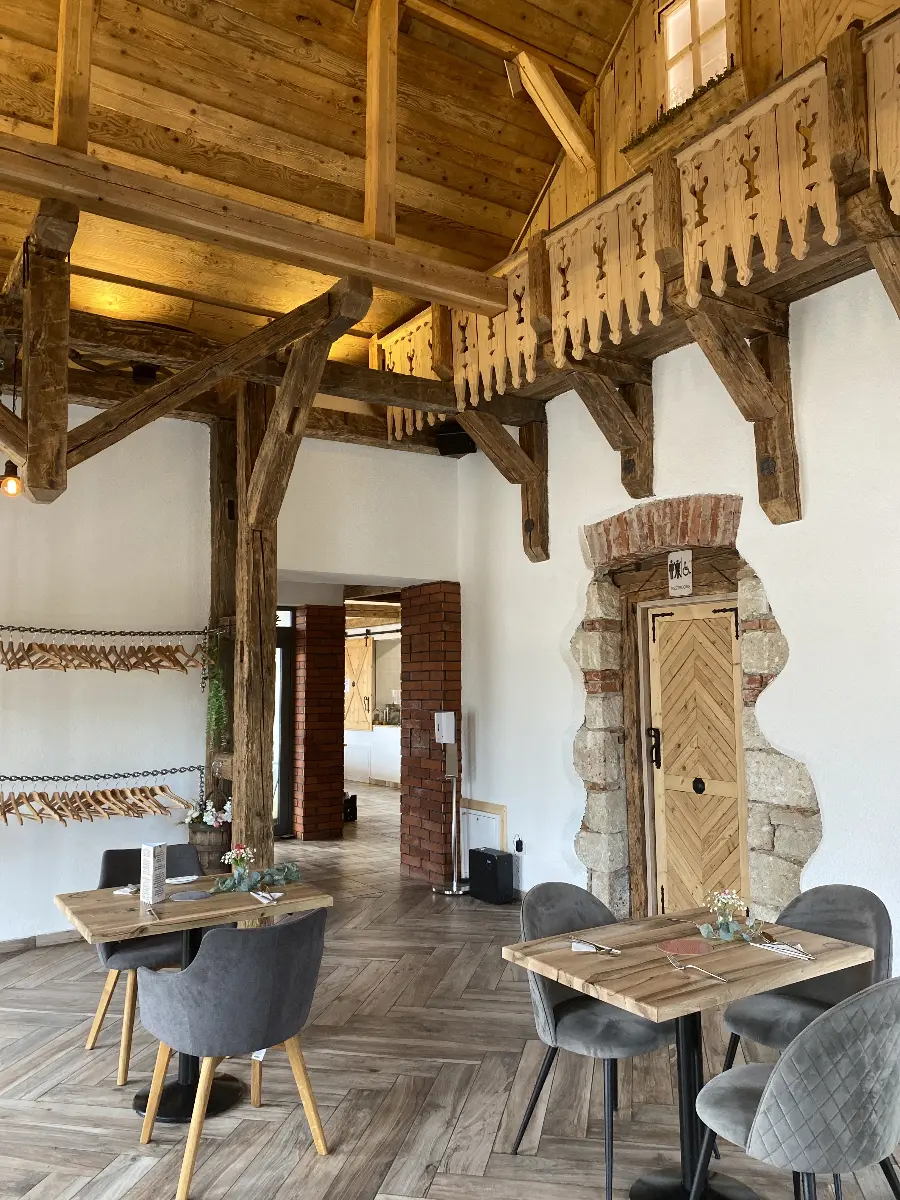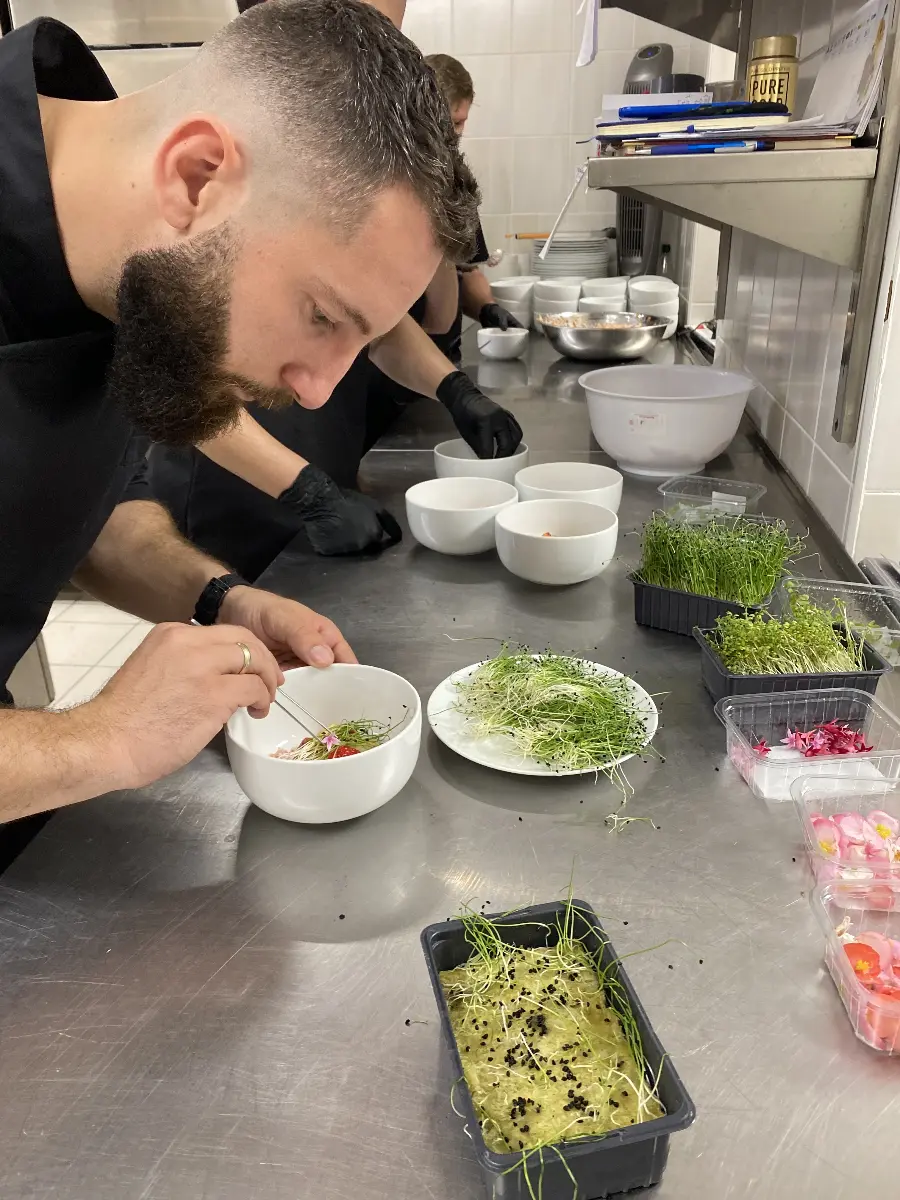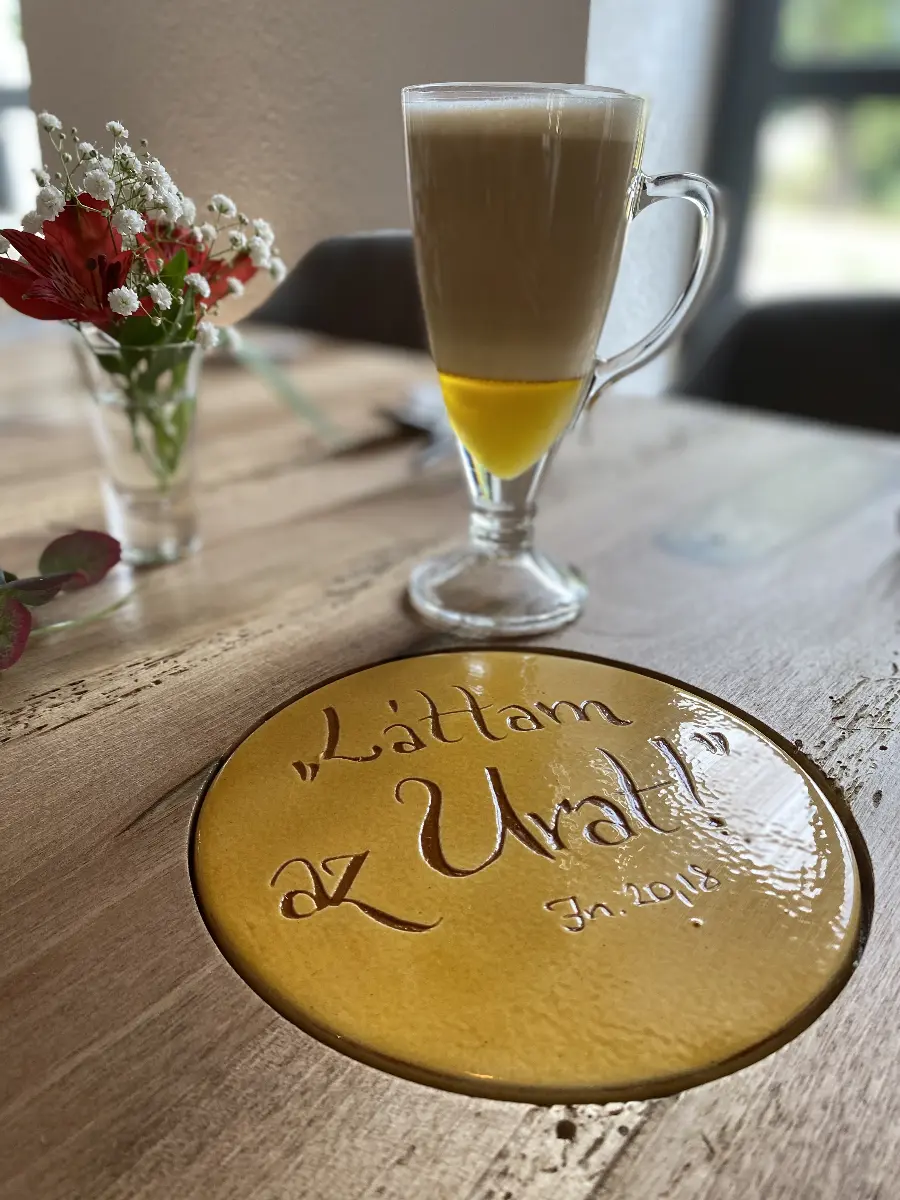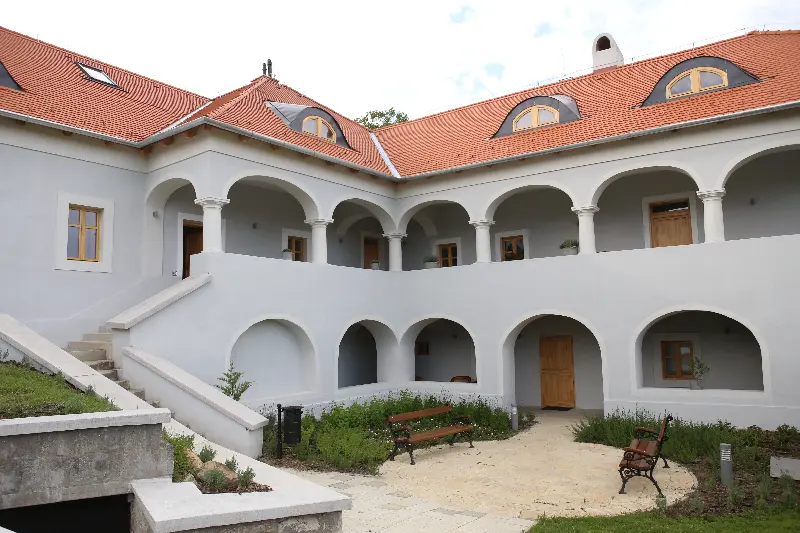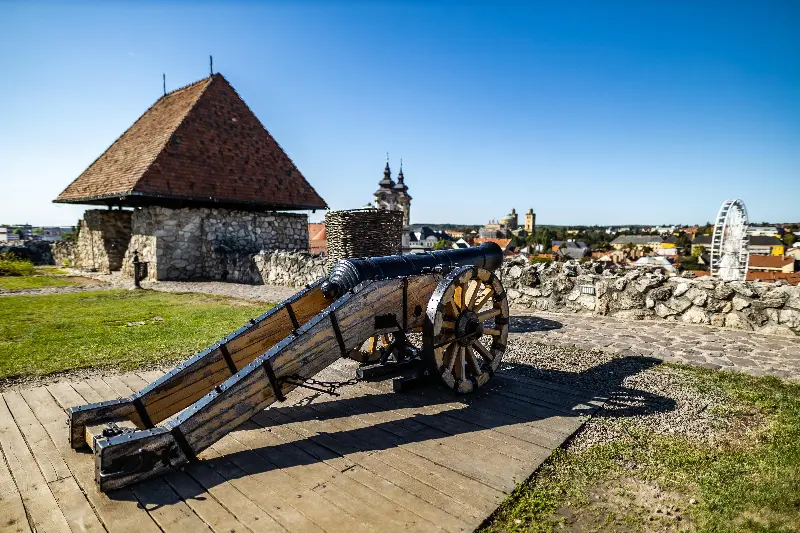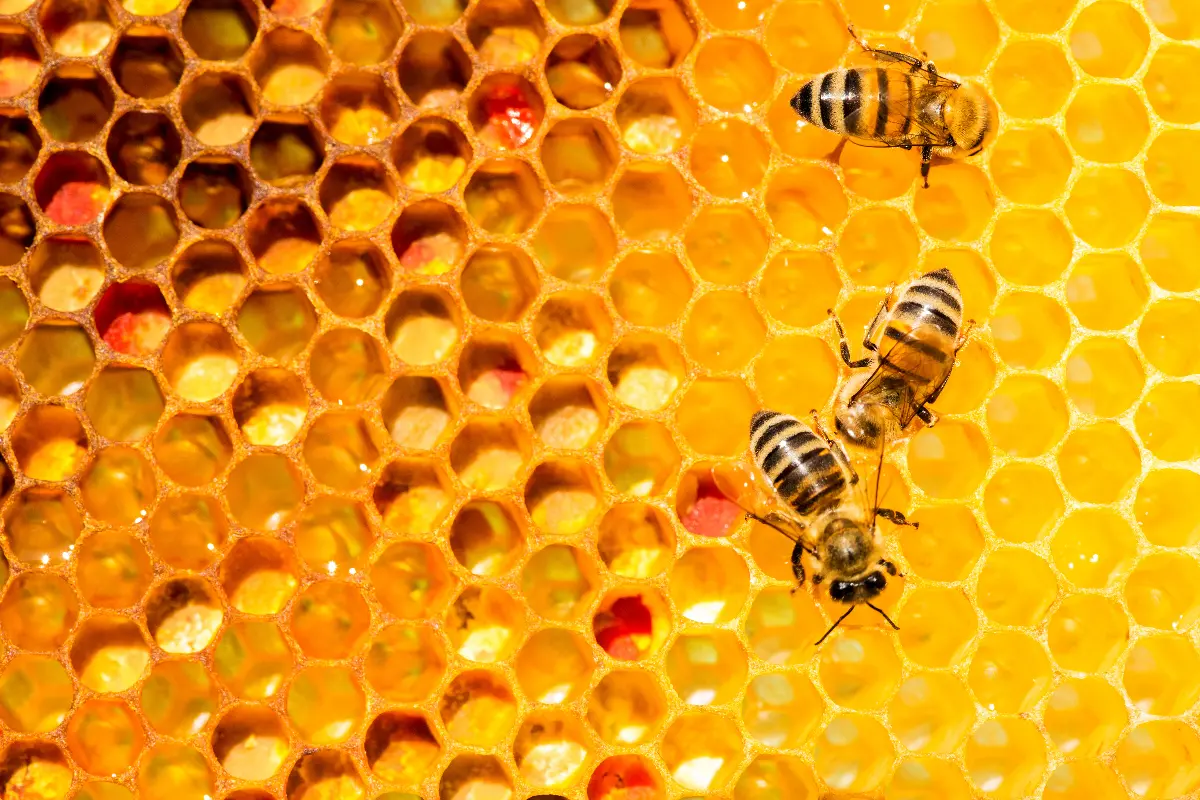
Helyszín címkék:
Milk and honey or the assistant minister and the fine dining
Méhész Zsuzsa
It all began with bees
The minister Levente Sohajda leads the congregation of Göncruszka. Neither him nor his herd cannot be defined as mundane: there are plenty of young people in the church of the tiny village with the population of 650 people on Sundays, and the ceremony has a surprisingly fresh voice and is close to people. Tourists haven’t chosen Göncruszka as a destination so far, they just crossed it when they were making head for surrounding sights. Meanwhile the reformed congregation established a nursery school and a school for talented children quietly, they took up beekeeping, installed a carpenter and a ceramic workshop and it’s true that volunteers arrived to help even from abroad but it yet cannot be said to be tourism. it all began with 26 bee colonies which was inherited by Levente Sohajda from his father. He didn’t really know what to do with it so he let it in the congregation’s care. The community beekeeping began in this way from which at first honey was made, donations from honey, a school from donations. After the nursery school of Göncruszka, Tálentum (talent) became a real school-workshop which is able to respect individuality and develop personalcompetencies. A proper canteen was needed.
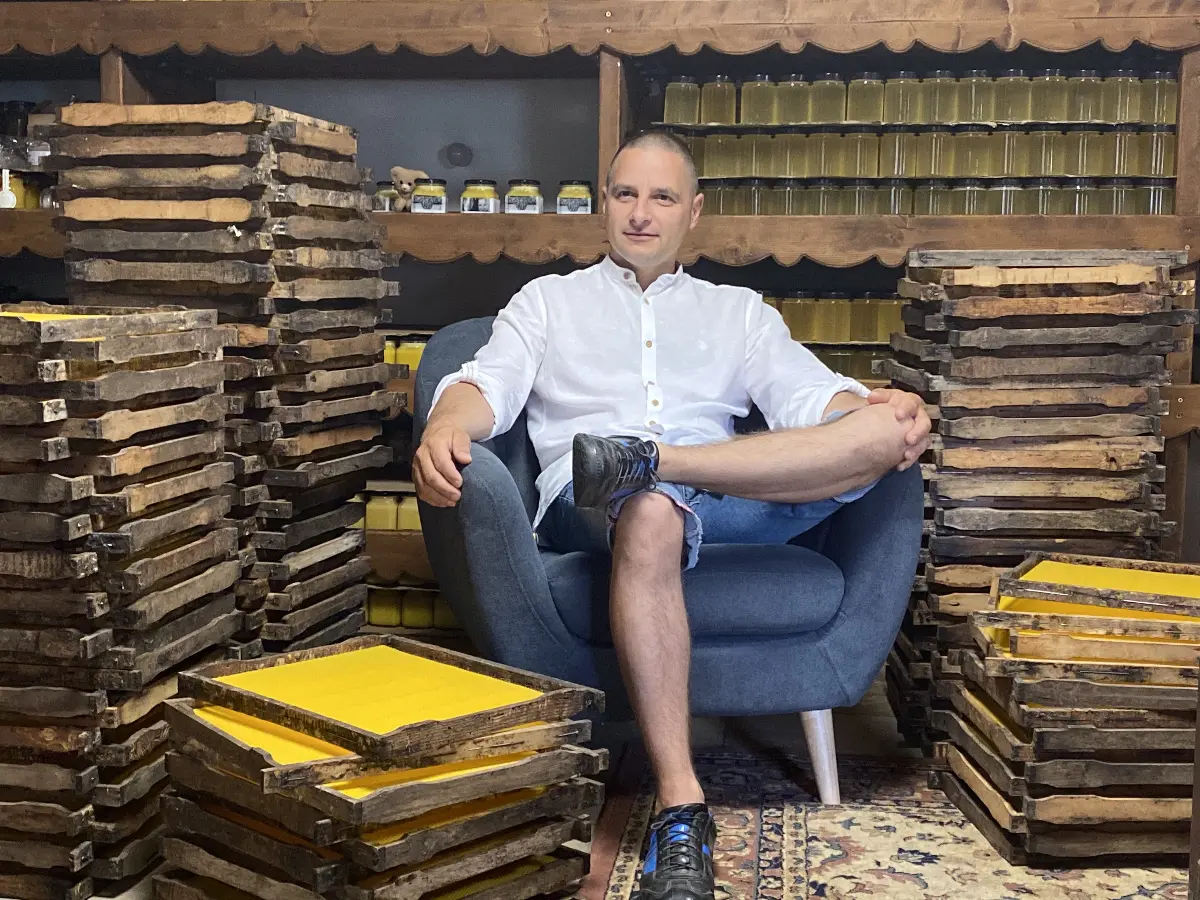
As Levente and his mates do everything a bit more differently than the great average, they gave a twist in it too. They weren’t satisfied with the design of the usual canteen:they wanted something more and better than this. Worthy place where you feel like sitting down, the environment is beautiful and the meal is delicious. And if you have all of these, why couldn’t the restaurant be open for tourist as well?
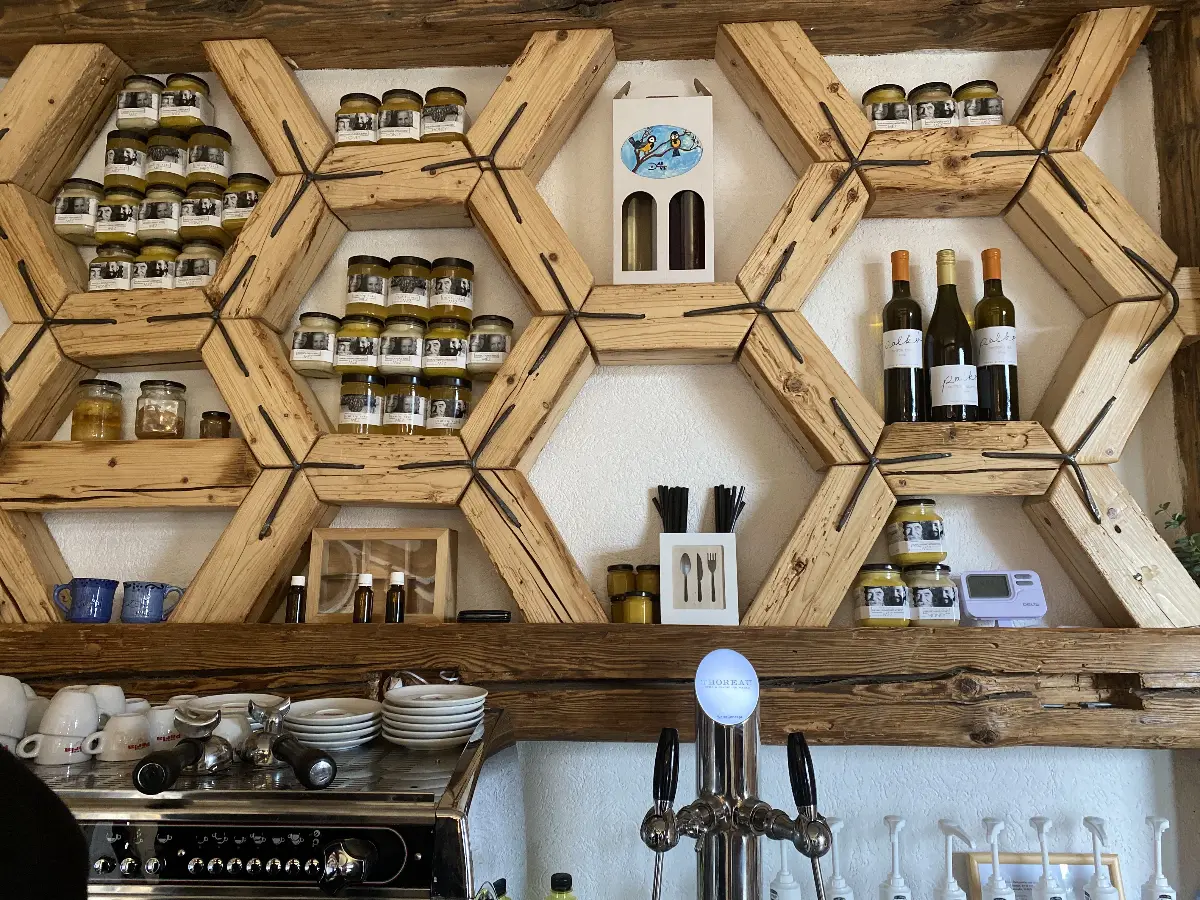
Beams from an old barn
Have you ever been to a restaurant where the minister is the chef? And in a canteen which can be confusedwith a trendy restaurant? Both statements are true for Tejjel-Mézzel. The elegantly neat, modern furnish getson well with old beams, a carpenter bench rescued from an aged barn. The shape of the honeycomb echoes inseveral places referring to the congregation’s bees. Tables are decorated by ceramic inserts with biblicalquotes but the place would suit any trendy bistros. We don’t feel that we should change for a religious voice,the atmosphere is easy-going and everyone is kind. Márk Szabó helps the congregation as an assistantminister — and he is the manager of the restaurant as well. The weekday menu is the same as children innursery and primary school get — but we don’t believe that this quality is possible in a rural canteen.Actually, we aren’t surprised at only dishes: the place, the service far more overachieve that we would expectfrom a school canteen. Mark has happened to drop in the world of fine dining: so occasionally he alsoorganizes thematic dinner parties where special courses are made primarily by the use of local ingredients.
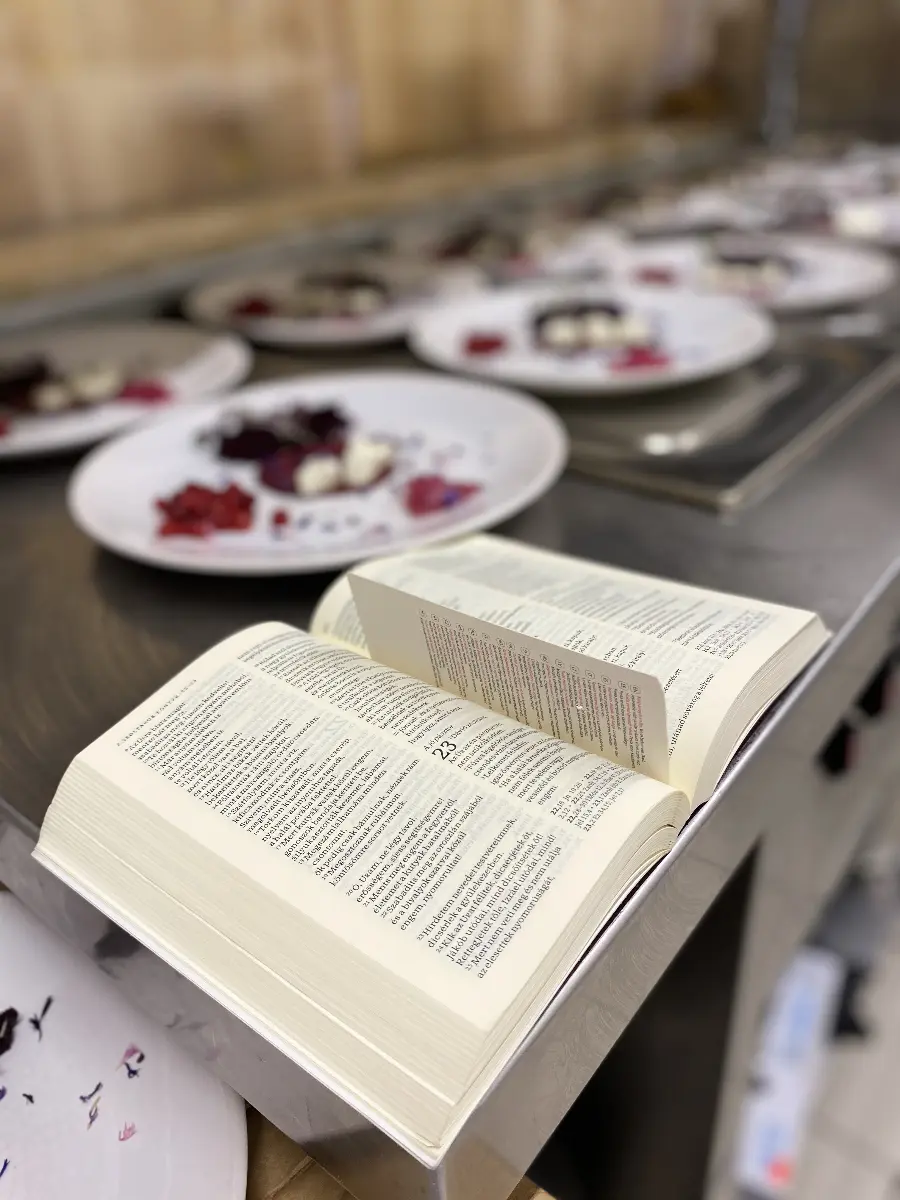
Fate brought him together with sous chef Pál Tóth who helps the kitchen of Tejjel-Mézzel with his professional advice.The menu is straightforward, the roast lamb is perfect, syrups are home made, wines are made from grapesgrown in Abaújszántó nearby, the philosopher of sustainability, Thoreau’s name appears on the design bottlesof the filtered water. Everything is kind, stylish, considered. Of course the congregation’s special coldextracted organic honey can be bought here and the coffee of the house is also made with this honey. Moreand more visitors come back from their guests, people visit them even from the Slovakia nearby. In summerthe place is enlarged by a pleasant terrace behind which a private small garden will be created. They areclosed only on Sundays — on that day the staff, some of the guests and even the chef go to church.
